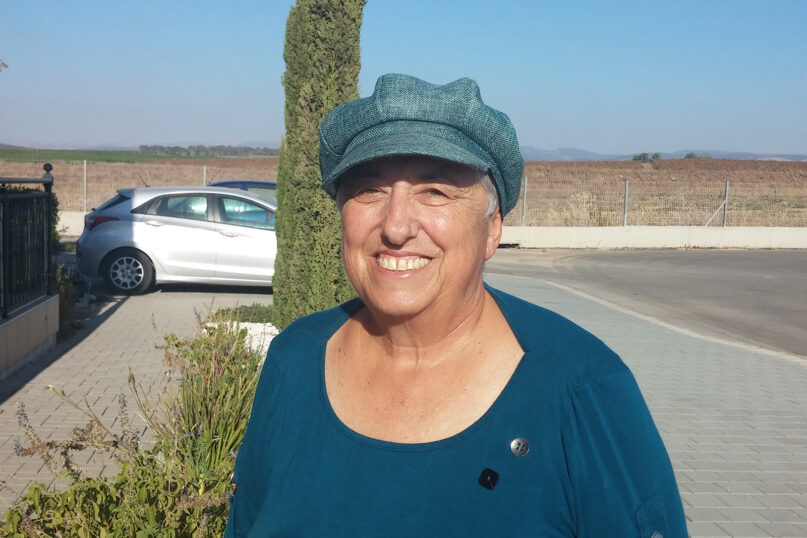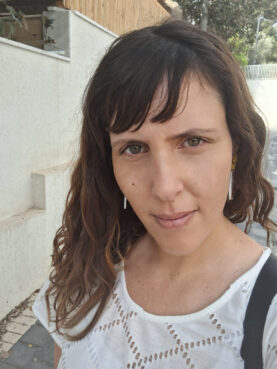
JERUSALEM (RNS) — Twenty years after the Israeli government withdrew its troops and settlements from Gaza, many Israelis are still deeply torn over the decision.
From Aug. 15 through Sept. 12, 2005, thousands of Israeli soldiers and police forcibly removed about 8,600 Jewish residents from 21 settlements before razing everything but their synagogues and hothouses during what was known as the Gaza disengagement.
While most Israelis supported the withdrawal at the time, some warned it would leave a vacuum that terrorism would fill. In 2007, Hamas seized control of Gaza from its rival, Fatah, and ramped up its rocket attacks on Israel. Then, on Oct. 7, 2023, Hamas infiltrated Israel, killing about 1,200 people and kidnapping 251, triggering the current war.
“At the time, there were international pressures on Israel to continue to retreat from the territory it captured in 1967,” said Efraim Inbar, president of the Jerusalem Institute for Strategy and Security, an Israeli policy think tank, and a department chair at Shalem College in Jerusalem. “Most Israelis supported the evacuation of Gaza primarily due to demography — Gaza was populated with more than a million Arabs, with 8,000 settlers.”
Today, most Israelis see a direct correlation between the removal of army bases and the Jews who lived in Gaza and Hamas’ ability to carry out the Oct. 7 massacre. In a poll released Aug. 1, conducted by the Israeli research institute Maagar Mochot for the Israel Hayom newspaper, 56% of Israeli respondents said, in retrospect, that the disengagement increased the likelihood of a major terror attack, while 76% said withdrawal was an error.
At a time when far-right lawmakers in Israel’s government are demanding that Israel reestablish Jewish settlements in Gaza, over half (52%) of the poll’s respondents said they support new settlements. More religious respondents were much more likely to support reestablishing Gaza settlements: 83% of ultra-Orthodox Jews and 67% of religious Jews indicated support, compared to 29% of secular Jews.
That many religious Jews — including the mostly Orthodox Jews uprooted from Gaza 20 years ago — dream of resettling there if circumstances allow is not surprising, said Rabbi David Stav, chairman of the Tzohar, a rabbinical organization that aims to unite religious and secular Jews in Israel.
“Those who want to resettle Gaza feel it is their mission to settle the land of Israel,” Stav said. But while “Azza,” the Hebrew word for Gaza, is mentioned in the Hebrew Bible, most notably in the story of Samson, “Gaza doesn’t play the same role in Jewish history as Hebron or Jerusalem or Shechem,” the first capital of the Kingdom of Israel, he added.

Anita Tucker. (Photo by Michele Chabin)
Anita Tucker, now 79, grew insect-free vegetables on her farm in the Netzer Hazani settlement in Gaza, where she and her husband lived for 30 years. She recalled the days when Jews living in Gaza and Israel freely shopped in Palestinian markets and Palestinians worked in Israel.
“There was no fear back then,” she said.
Tucker said that if Israelis eventually move back to Gaza, she “would have no problem living next to Palestinians who want to stay and are peaceful — just as we live next to Arabs in much of the country. Why should it be a problem?”
At the time, though, the Israeli public was worn down by the failure of the Oslo Accords peace process of the 1990s, the bloodshed of the Second Intifada in from 2000 to 2005 and the rising death toll from Palestinian attacks against Gaza settlers and soldiers guarding the settlements.
Gershon Baskin, an Israeli political activist and negotiator who has been pressing for a ceasefire since the war began, said Israel’s decision to leave Gaza “was a good idea that went bad.”
Former Israeli Prime Minister Ariel Sharon, who died in 2014, was a staunch supporter of the Gaza settlements, but had said deploying thousands of Israel Defense Forces soldiers to guard the settlers was no longer unsustainable, Baskin recalled. However, Sharon’s “main motivation was to prevent the creation of a Palestinian state,” by sacrificing the Gaza settlements, he said.
Months before Sharon announced the disengagement, international leaders were pressuring him to accept the Geneva Initiative, a peace plan that would have created a Palestinian state in the West Bank, Gaza and East Jerusalem. He hoped that by giving up Gaza, Israelis could stay in the West Bank and East Jerusalem, Baskin said.
Days before the disengagement, the U.S. Department of State announced it was considering supporting the Geneva Initiative.
“When Sharon said he would dismantle settlements and army bases, international attention focused on the disengagement” rather than Palestinian independence, Baskin said.

Hava Zaltzman-Sheich. (Courtesy photo)
Jews evicted from Gaza are still dealing with the loss of their homes, communities and livelihoods, they told RNS.
Hava Zaltzman-Sheich was 16 years old when the Israeli army came to destroy her Gaza settlement, Moshav Gadid, the only home she had ever known. Teenagers like her played a central role in trying to save the settlements and hundreds refused to leave.
“This was my home, and I never believed that this could happen — that the government would do this, that our soldiers would uproot us,” she said. “My parents left earlier because they didn’t want to see the soldiers uproot us, it was too painful. It was also painful for the soldiers. I stayed until the very end.”
Relocated to a tiny mobile home in southern Israel, she experienced what she calls “an identity crisis.” Now a music therapist and mother of two, Zaltzman-Sheich said she is still living with the loss.
“It was as if someone had x’d out my childhood,” she said. “All of my beliefs, including the rabbis who said we would not be forced to leave, were shaken. … At first I searched for solace in religion, but then became less religiously observant, although many aspects of Judaism are really important to me. To this day, I’m afraid to lose things and people so I become overly attached to them.”
Although most settlers weren’t naïve to the fact that their government was willing to destroy their homes, many prayed for a miracle that it wouldn’t happen.
Once Tucker’s family was evicted, they moved from place to place for seven years. Eventually, she and many other Netzer Hazani residents purchased land in a struggling moshav, or village, in Israel and built simple homes there. The financial compensation the settlers received for their lost homes was insufficient to buy a home in most of Israel, she said.
Tucker said she and most of her fellow evictees “are yearning for home” in Gaza, still.
“It’s not something political, it’s just human,” she said. “I lived there for 30 years. Where I live now is my house but not my home.”
However, Zaltzman-Sheich said, while she understands why others may want to return, the way things stand now, she would not want to go back.
“I would like to visit, but the fear of moving back is too deep,” she said. “I don’t want to be anywhere dangerous.”
